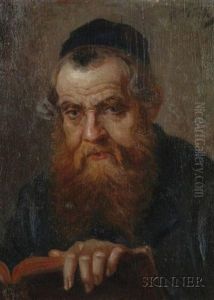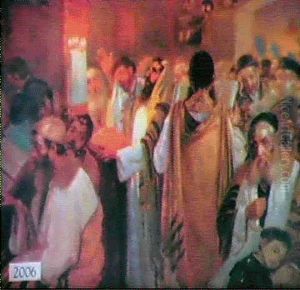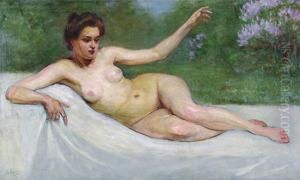Jakob Weinles Paintings
Jakob Weinles, also known as Jakub Weinles or Jacob Weinles, was a Polish-Jewish painter, born in 1870 in Białystok, then part of the Russian Empire. His early life was marked by the cultural richness of the shtetls, Jewish towns in Eastern Europe, which later influenced his artistic themes. Weinles attended the Warsaw School of Drawing and later moved to Munich, which was a major artistic hub at the turn of the century, to further his education at the Munich Academy of Fine Arts.
Weinles's art was deeply rooted in the Jewish experience of Eastern Europe. His works often depicted the lives of Jewish people, their customs, and traditions with a blend of realism and sentimentality. He was particularly known for his genre paintings, portraits, and scenes of Jewish rituals, which captured the vibrancy and resilience of Jewish culture amidst the adversities faced by the community.
During World War I, Weinles moved to Vienna and continued to work and exhibit his art. His style evolved over the years, showing the influence of different art movements such as Impressionism and Symbolism, yet always staying true to his cultural heritage. After the war, he returned to Poland and became an active member of the Jewish artistic community. He was involved in the Jewish Society for the Encouragement of the Fine Arts and also served as a teacher, influencing a new generation of Jewish artists.
Unfortunately, Weinles's life and career were tragically cut short by the events of World War II. As the Nazis invaded Poland and persecution of the Jews intensified, Weinles's situation became increasingly perilous. In 1942, he was confined to the Warsaw Ghetto, where he continued to paint despite the harsh conditions. Jakob Weinles died in the ghetto in 1943, and with his death, the art world lost a poignant chronicler of the Eastern European Jewish experience. His works remain a testament to the culture that thrived before the Holocaust and serve as a poignant reminder of the communities that were nearly obliterated during the war.


